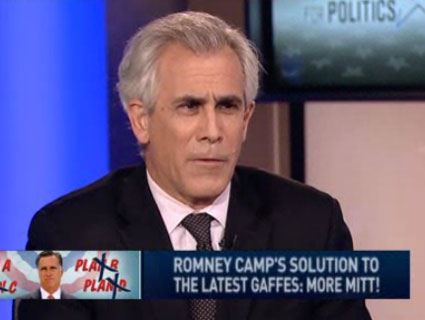Via Ed Kilgore, Ron Brownstein tells us today that Mitt Romney’s problems aren’t due to an incompetent campaign. They’re due to decisions he made a long time ago:
Of all Romney’s primary-season decisions, the most damaging was his choice to repel the challenges from Perry and Gingrich by attacking them from the right—and using immigration as his cudgel. That process led Romney to embrace a succession of edgy, conservative positions anathema to many Hispanics, including denouncing Texas for providing in-state tuition to the children of illegal immigrants; praising
Arizona’s immigration-enforcement law; and, above all, promising to make life so difficult for the estimated 11 million illegal immigrants that they would “self-deport.”
….Romney’s inability to dent Obama’s support among Hispanics (or other minorities) means the GOP nominee probably can’t win without attracting at least 61 percent of white voters. Yet a second early decision has greatly compounded that challenge. Through the primaries, Romney embraced an unreservedly conservative social agenda (such as defunding Planned Parenthood and allowing employers to deny contraception coverage in health insurance plans), especially after Santorum emerged as his principal rival. That positioning helps explain why polls consistently show Obama drawing a majority of college-educated white women—not only the most socially liberal sector of the white electorate but also the fastest-growing. If Obama can hold a majority of those women and match his 80 percent with all minorities in 2008, Romney would have to carry two-thirds of all other whites to win—as much as Ronald Reagan won among those remaining voters in his 1984 landslide.
Sure. This is just another way of saying that the Tea Party has been Romney’s downfall. They forced Romney too far to the right and didn’t give him the room (or the trust) to move back toward the center during the general election.
My basic take on this election has been pretty much the same since the first day: incumbent parties don’t lose the presidency after a single term unless the economy really sucks. (It’s only happened once in the past century — though in 2004 Bush came close to making it twice in a century.) But although the economy right now is in poor shape, it’s not in terrible shape, and this means Obama is the likely winner of a close election. But the key word here is close. The economy for the past year has been weak enough that a good challenger had a real chance to win.
In other words, the fundamentals predicted a fairly close election, which means that the candidate and the campaign really mattered this year. All that horserace stuff played a real role. But the tea party made it impossible to play that role smartly. They’ve moved so far outside the mainstream that they make demands on politicians that doom them in a general election.
We saw this dynamic play out already in 2010. In congressional elections, the tea party probably helped Republicans win more conservative districts than they otherwise would have. But when you move up to the Senate, where you need to have a broader appeal, the tea party foisted several terrible candidates on the GOP, causing them to lose at least three winnable races. And now, in a presidential election, which requires the broadest appeal of all, Mitt Romney’s subjugation to the tea party has all but ruined him. Sic transit etc.
















